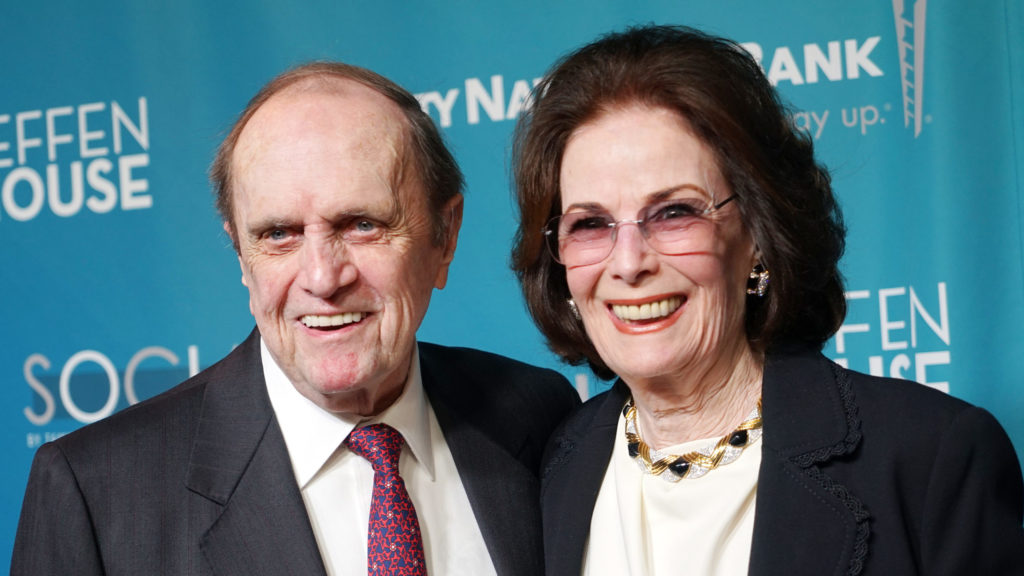The word “icon” is overused, but there are times when there is no more appropriate word to describe certain people and their legacy in popular culture.
It is a descriptor fitting the late, great Bob Newhart. He achieved this status, not by telling snappy one-liners, machine-gun style, using four-letter words, or working “blue.” He did not prowl a stage like a wounded panther, seeking out unsuspecting audience members to ridicule, or take up a particular political cause to bash or praise. When he broke into show business, he looked every inch what he had been in his previous life: a buttoned-down, mild-mannered accountant who looked like he should be sitting behind a desk, not a microphone.
But it was in front of a microphone that his God-given talent flowered. Commenting on his 180-degree change in professions, Newhart would say audience reactions confirmed the rightness of his decision. He would also say the management of the accounting firm he worked for likewise fully endorsed him finding a new way to make a living. Both comedy and accounting benefited.
His breakout into the big time came with comedy albums. Yes, those used to be a thing. His first album was No. 1 on the charts. His second album did the same. He made films, but it was television where Newhart was a star. From the 1960s onward, he was a fixture on TV. His sitcom in the ’70s dominated the ratings, and his sitcom in the ’80s did as well. He continued to appear in films — younger audiences fondly know him as the foster father of Will Ferrell’s Buddy the Elf and from his recurring role on the “Big Bang Theory.”
Like his idol, Jack Benny, another worthy of the “icon” title, Newhart did not tell jokes. He structured imaginary scenarios of everyday ordinary people, just like him, placed in extraordinary and oftentimes absurd situations. His only prop, many times, was a telephone, or an empty space where his imaginary scenarios were taking place. Thanks to our digital world, these wonderful and artful comedic structures can be rediscovered on YouTube.
Born in 1929, Newhart was of a generation that did not wear their religious beliefs on their sleeves. When pressed in interviews, he declared his Catholicity without apology, but it was something he did not feel the need to declare as much as live it out. Being Catholic was not what he did, but who he was. Growing up in Illinois in a Catholic bubble, Newhart went to Catholic schools from the first grade through Loyola University Chicago, where he graduated with a business degree. He would often credit his Jesuit education for giving him an appreciation of the more absurd nature of existence. He did so not in a spirit of superiority, but one of embracing the sometimes comical foibles of everyday life.
With so much comedy today built on a foundation of underlying anger and ennui, Newhart’s ingrained Catholic optimism was a constant, even if he was describing a frazzled driver’s education teacher or an air traffic controller trying to figure out where he put the last airplane.
His Catholicity was probably most prominent where it was most private: his family. The shared faith of Newhart and his wife, Ginnie, was the catalyst for their meeting in the first place. She was a babysitter for a well-known comedian whose path intersected with Newhart. Upon returning home from this meeting with Newhart, the comedian told Ginnie, “I met this young guy and his name is Bobby Newhart, and he’s a comic, and he’s Catholic and you’re Catholic, and I think maybe you should marry each other.”
Granted, his marriage did not last forever. His beloved wife Ginnie passed away in 2023 after nearly 60 years of marriage. Once asked about the secret of a long marriage, Newhart said, “Being Catholic has a lot to do with it. You work a little harder and you just don’t have your first fight and walk out the door.”
So, rest in peace, Bob Newhart, and thank you for all the joy your wit and talent brought into this world — talent still available to us online. Where else will you hear about two scientists testing the theory that 100 monkeys and 100 typewriters will eventually produce Hamlet? Bob Newhart thought about that and imagined it, playing out with a scientist noticing paper in one of the monkeys’ typewriters. Full of excitement, the scientist tears the paper out of the typewriter and calls out to his colleague: “Look Fred, I think we’re on to something!” Fred reads the paper: “To be or not to be … that is the nfdkfiuy.;dspkigmvbplsg.”
It was funnier when Bob Newhart told it. And the world is a little more somber than it needs to be with his loss.

